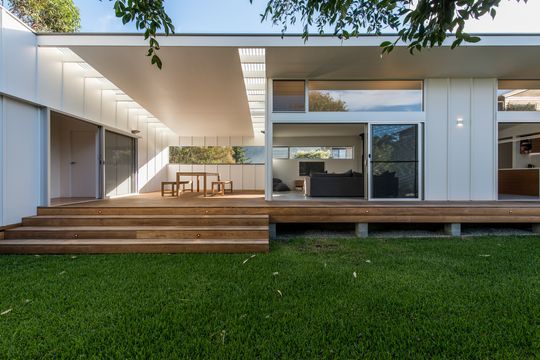When you're dealing with a tight site, a courtyard could be your answer to let in light and breezes and create a usable outdoor space. So, what are the benefits of a courtyard design? Some of the projects we've featured recently are the perfect examples. Let's take a look...
1. Light
Natural light can be harnessed to naturally heat your home during cooler months and, of course, there's nothing better than basking in spring's first sunny days from the comfort of your couch, cuppa in hand. Unfortunately, many inner-city blocks are long and narrow and you may not be blessed with perfect orientation. Hands up if you've got a dark, south-facing backyard? This is a situation where a courtyard design can be a real boon. You'll be able to get light into the rear spaces and create a sunny outdoor space in the middle of the home. And it's not just suited to south-facing backyards, either. You can grab north light from the side with a courtyard design too, so even if neighbours are breathing down your neck on all sides, creating some space for light in the middle of your home could be the answer.
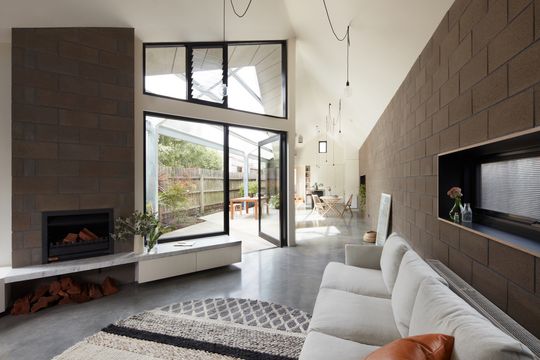
A courtyard carved into the side of this long, narrow home lets light deep into the living area.
2. Breezes
Speaking of breathing, a courtyard design could also mean a breath of fresh air for your home. You might have heard of cross-flow ventilation? It's basically a fancy way of describing throwing all the windows open to let breezes into the home. But cross-flow ventilation works best when you have windows of opposite sides of the room. This becomes a little tricky when you're building on a long, narrow block with neighbours on either side. You'll either end up with a stuffy house with little ventilation or a wind tunnel through the middle that ends up knocking granny's plate off the wall, destroying your heirloom and any hope of blowing away the stale curry smell from last night's takeaway. A courtyard design breaks the house into smaller, more manageable areas, with more walls opening onto the outdoors, so it's much easier to encourage a gentle breeze and an airy home.
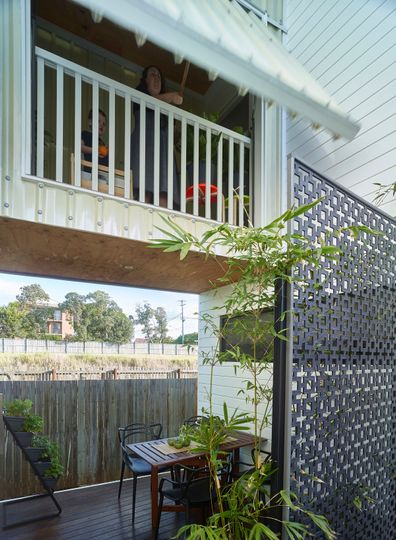
Toussaint and Volz weren't scared to design what is probably Australia's skinniest home. They incorporated a decked courtyard in the middle of the home to maintain light, breezes and outlook to the narrow site.
3. Separate zones
When it comes to energy conservation, it's ideal to be able to divide your home into separate zones so the whole house doesn't need to be heated or cooled at once. A courtyard design is the perfect way to do that. Bedrooms can be on one side of the courtyard and living areas on the other. Don't be afraid to make the two zones completely separate, either - meaning you go outside to move between the bedrooms and the living areas. It might sound like a pain, but in our modern world we spend so much time in artificially conditioned spaces, it's a healthy relief to step outside, get a glimpse of the stars and breath in the lemon-scented gum down the road or that distinctive aroma of fresh rain on dry soil. A courtyard design might help you save money and feel more connected to nature.
At Blueys Beach House 5, Bourne Blue Architecture kept the living areas and main bedroom separate from the remaining bedrooms with a covered, decked courtyard.
4. Create a great indoor-outdoor connection
And there's one of the greatest benefits of a courtyard design - creating a great indoor-outdoor connection. With a courtyard design, you can have between two to four walls opening onto the courtyard. With the addition of sliding or bi-fold doors and windows, you can create a home which seamlessly transitions between inside and out. An added benefit is your indoor spaces can afford to be slightly smaller if you have the option of spilling into the courtyard. This will save money on the build and for the lifetime of your home, plus you'll find you spend more time outdoors which has numerous proven health benefits.
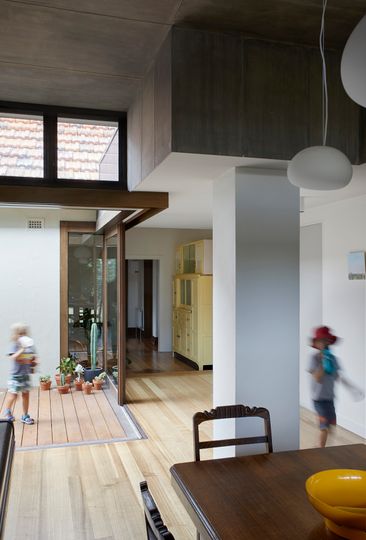
This courtyard by ZGA Studio creates a seamless indoor-outdoor connection by disolving the corner of the room into the outdoor space.
5. Connect old and new
If you're extending an existing home, a courtyard design could be the perfect way to differentiate between old and new. In any extension, it can be difficult to know where to start and finish the internal works - does 'will we replace all the floorboards so they're all the same?' sound familiar? The benefit of a courtyard design is creating a clear distinction between old and new - the existing home gets left pretty much as is, while the new addition stands alone, and both old and new can benefit from the light, breezes and connection to the outdoors.
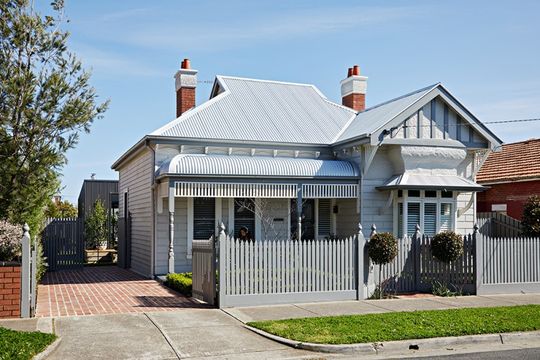
The connection between old and new is back and white at this Brunswick home by Archiblox where a central courtyard is used to separate the existing weatherboard home from the new addition.
6. Easier build when extending
If you do decide to separate old and new with a courtyard design, it could mean big savings on your build. One of the areas where costs creep in during a renovation is making a connection to the existing home and 'making good' anything that gets damaged in the process. By separating old and new with a courtyard, you eliminate many of these problem areas and it means the builders can get to work while leaving the existing home intact. You might even be able to stay in the home while you're building, saving the cost and hassle of relocating.
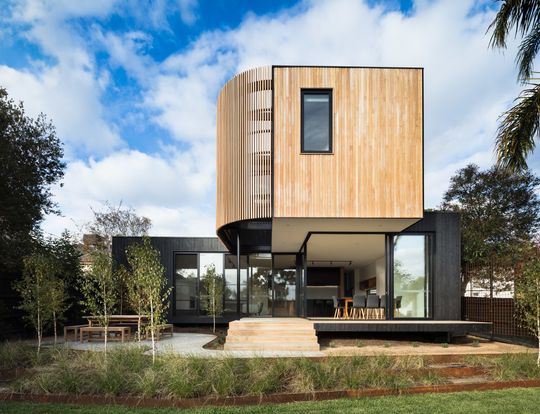
While it's not a conventional courtyard design, this extension by Modscape is separated from the existing home and, to next level things, was prefabricated off-site, so the owners were able to live in their home while their renovation was being built. This is similar to the way a courtyard design can minimise disruption to your existing home while you extend.
